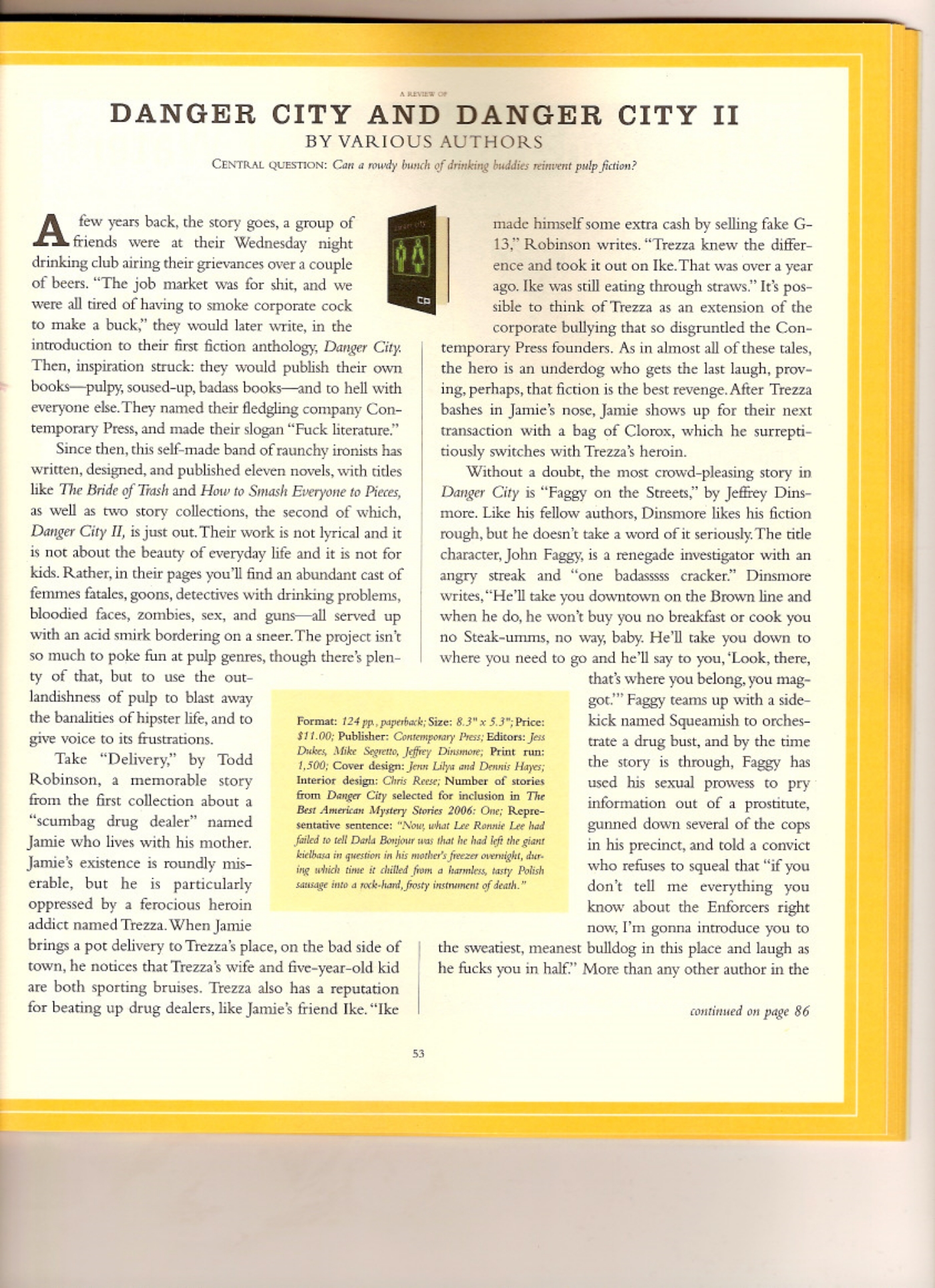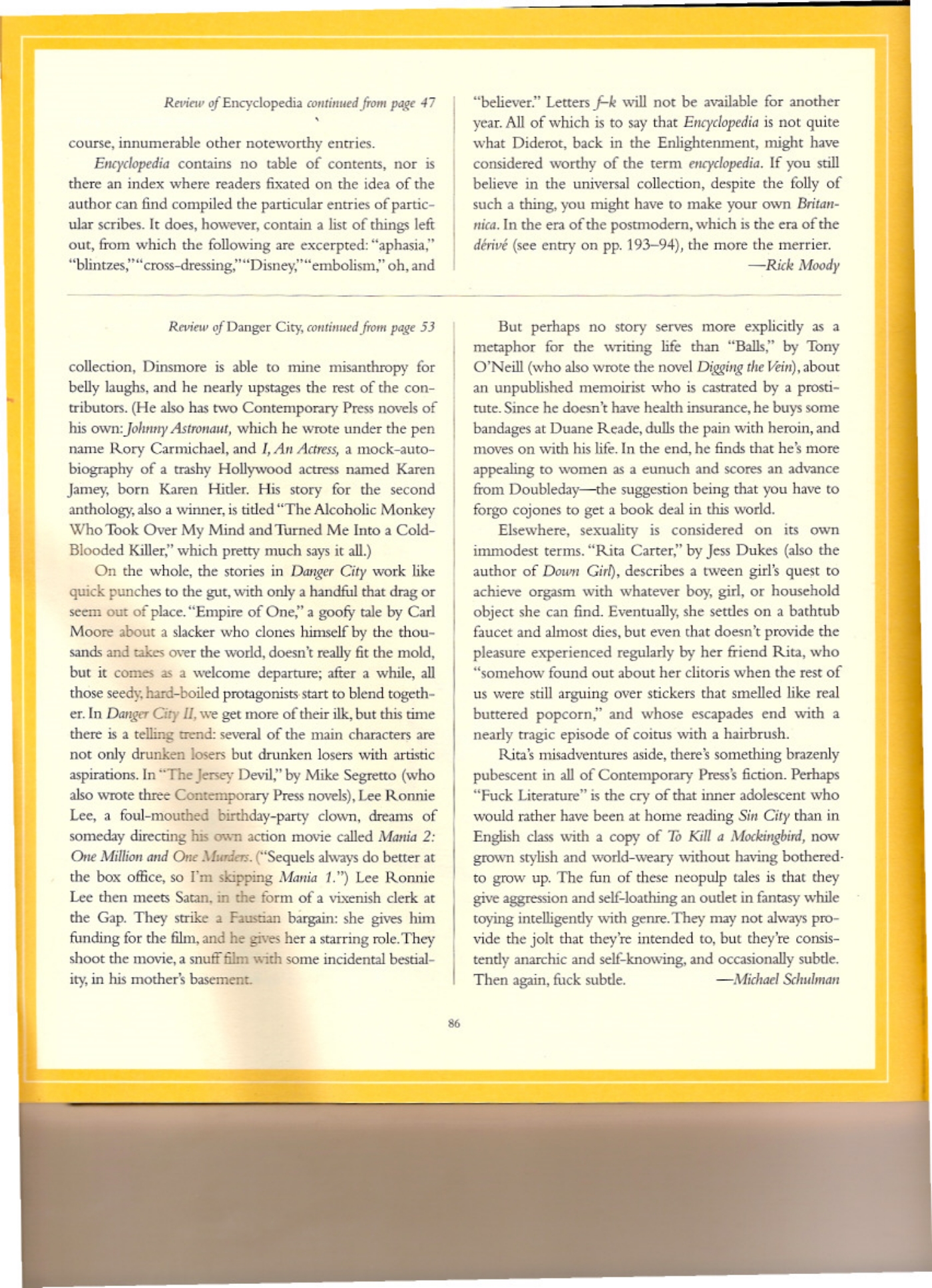Jay Brida
FAILURE IS AN OPTION
As a never-quite-reformed punk rock kid, I've always been drawn to the beautiful failures of the genre, which was pretty much all of them. In real time, I'd read about the importance of the Ramones, always with the caveat that, like Iggy and the Stooges, the Velvet Underground and the New York Dolls, they were more influential than "popular". This was a time when people still used the phrase 'sell out' as a pejorative, rather than directive. Well, in that spirit, I present the work of Contemporary Press. The idea of it came to me at a moment of cultural foment in Brooklyn, where I was living at the time. It was a heyday, I'd say. I was friends with or around people who were making waves in the small indie genres in which we existed and it occurred to me that they were all kind of twee about it. Not that there was anything wrong with that! But I saw a niche — dirty punk pulp that stood in opposite to that. Something born of creative carelessness. Four years, 13 novels and two short story collections later, we flamed out and it didn't take an MBA to know why; we were undercapitalized, we had 7 partners working for a percentage of whatever we could sell out for instead of money (12.5% of zero was, in fact, zero) and we just didn't really give a fuck. All of that said, I stand by the art and the artlessness with which we ran our nationally-distributed publishing house. I believe that we were simply ahead of our time and that, no matter when we would have flamed out, we always would have been. Click on the obscured picture of Uma below for more than you ever wanted to know about a minor footnote of an independent publishing company.






